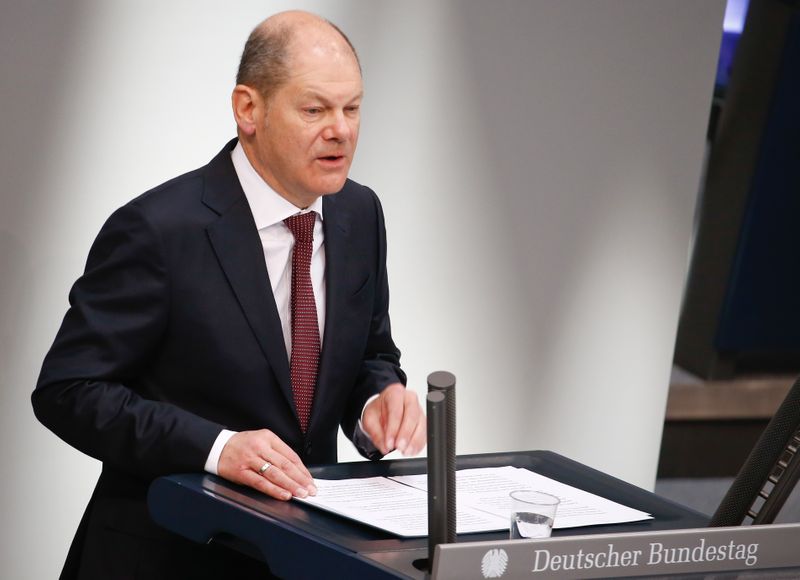
Olaf Scholz told the Bundestag lower house the government needed a debt-financed supplementary budget of 156 billion euros ($169 billion) to protect the health of Germans and keep struggling companies afloat. He proposed using an exit clause for emergencies to get around the debt brake.
“That’s a gigantic sum, nearly half of our normal budget for one year,” Scholz said. “And since this is such a large sum, the German Bundestag must decide if it uses the envisaged exemption to the debt rule in the constitution for the case of an extraordinary emergency.”
Scholz appealed to lawmakers to approve the unprecedented step, “because we need the money so that we can fight the social and economic impact of the crisis with full force.”
Scholz spoke instead of Chancellor Angela Merkel, who was still quarantined after having contact with a doctor who tested positive for coronavirus.
In parliament, lawmakers were sitting meters apart to protect each other from possible infection.
“We’re currently experiencing a crisis unprecedented in the history of the Federal Republic. This crisis is big – totally different from the crises of the past time,” Scholz said.
The government’s package includes a supplementary government budget of 156 billion euros, 100 billion euros for an economic stability fund that can take direct equity stakes in companies, and 100 billion euros in credit to public-sector development bank KfW for loans to struggling businesses.
On top of that, the stability fund will offer 400 billion euros in loan guarantees to secure corporate debt at risk of defaulting, taking the overall package to more than 750 billion euros.
The government will give the KfW bank debt authorization worth up to 200 billion euros. That means overall new borrowing could rise to as much as 356 billion euros this year, depending on how much companies are making use of the tools.
The combined sum of new debt represents roughly 10% of Germany’s gross domestic product, and that doesn’t include a fiscal stimulus package promised by Scholz to take effect after the virus is contained and the economy is picking up again.
($1 = 0.9246 euros)



